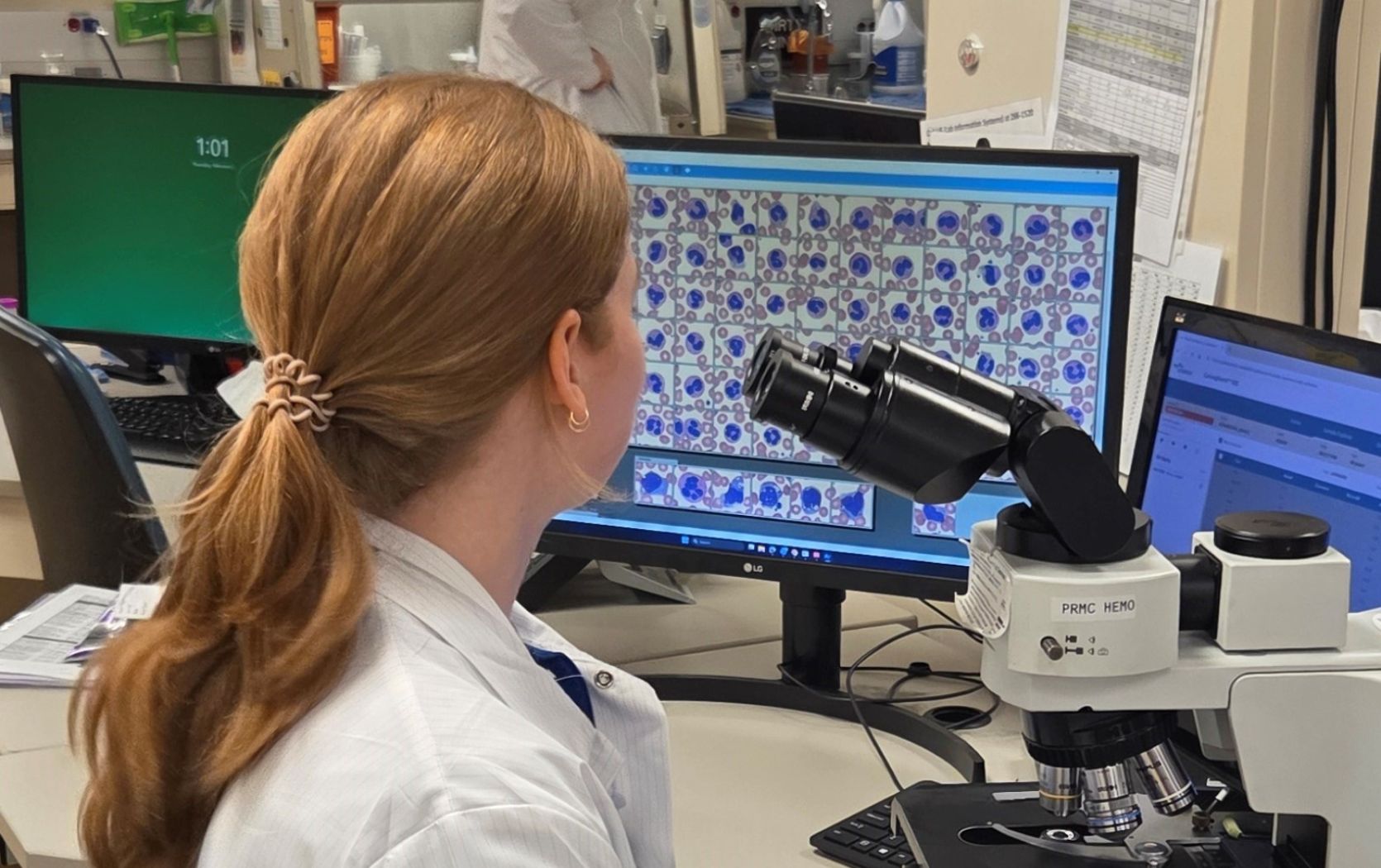
More and more, pharmacists are functioning as dedicated, additional resources on interdisciplinary teams throughout the Parkview health system. We spoke with one of these experts, Michelle Adgalanis, PharmD, BCACP, who sees patients at Parkview Weight Management clinic, about the benefits of these services.
What is the pharmacist’s role at Parkview Weight Management?
At Weight Management, the pharmacist collaborates with patients and providers to optimize pharmacotherapy plans through medication management, patient education and follow-up outreach. Patients meet with the pharmacist one-on-one between appointments with their Weight Management provider, which allows for closer follow-up time to address effectiveness, adverse effects and any concerns the patient may have with their prescribed medications.
Additionally, the pharmacist assesses lifestyle modifications and any progress or barriers the patient is having during their weight loss journey and creates patient-centered goals with
the patient prior to their next appointment.
The pharmacist also serves as a liaison between the practice and Parkview Pharmacies, helping to support access and affordability for patients in collaboration with a pharmacy financial navigator. Parkview Pharmacies provide a Medication Care Program, which offers syncing and personalized refills of all medications. This way, refills are due and delivered at the same time and the patient gets individualized care every time they need a new prescription or renewal/refill. Home delivery of medications for eligible patients is at no additional charge beyond medication copays (Indiana and Ohio only) and members of the program also see improvements in the time needed to complete prior authorizations. This additional resource is beneficial for the affordability and timeliness of the patient receiving their medication.
What are some of the other care teams in our health system that have in-office pharmacists?
- Primary Care Clinics – Pharmacists work on an interdisciplinary team in the management of chronic disease states such as diabetes, hypertension, hyperlipidemia and tobacco cessation. In Enhanced Primary Care Clinics, pharmacists have an extended scope, also supporting the co-management of chronic conditions such as chronic obstructive pulmonary disease (COPD), migraines, pre-exposure prophylaxis (PrEP) or weight management.
- Internal Medicine Graduate Medical Education Clinic – Pharmacist serves as medication expert on an interdisciplinary team, including Internal Medicine residents, managing chronic diseases, answering medication information questions, and assisting in medication access and affordability.
- Comprehensive Medication Management Clinics and Anticoagulation Therapy Unit – Pharmacists manage patients on anticoagulation medications including warfarin and direct oral anticoagulants.
- Endocrinology – Pharmacist within the Endocrinology clinic works on an interdisciplinary team in the management of patients with Type 1 and 2 diabetes, gestational diabetes and prevention of comorbidities. The pharmacist works with a financial navigator to support medication access and affordability for patients.
- Cardiology – Pharmacists work on an interdisciplinary team in the management of hypertension, hyperlipidemia, heart failure and cardiometabolic disorders.
- Transitional Care Clinic – Pharmacists follow up with patients after recent hospitalization to identify medication discrepancies and interactions, opportunities to simplify medication regimen and address barriers to medication access.
- Fall Prevention and Post-COVID Clinic – Pharmacists within the Neuroscience Multispecialty Clinic work in a multidisciplinary team to assess and address potential causes of falls or post-COVID symptoms to improve patients’ quality of life and reduce risk of injury.
- Movement Disorder Clinic – Pharmacist within the Neuroscience Multispecialty Clinic work on an interdisciplinary team to assess medications used to treat or those that may cause movement disorders.
- Parkview Packnett Family Cancer Institute – Pharmacists work alongside providers within dedicated tumor site teams, serving as the medication expert. Pharmacists provide guideline-directed, evidence-based recommendations on oncology treatment plan selection based on patient factors like tumor type, labs, and genetic results. Pharmacists make recommendations for medication adjustments, monitoring of medications, and supportive care to minimize adverse effects of chemotherapy agents. Pharmacists may also help manage drug interactions, coordination of care between admission, infusion therapy, and clinic visits, and answer drug information questions.
What are some of the most common topics that you address with patients concerning their medications at Parkview Weight Management?
he most common topics addressed with patients during follow up appointments are assessing the efficacy and safety of the prescribed medication. The pharmacist assesses the patient’s progress and if they are having any side effects and may adjust the dose accordingly. The pharmacist also assesses if there are any medications that are contributing to a patient’s weight changes along with potential interactions. In addition to these medication assessments, the pharmacist sets lifestyle modification goals with the patient including diet and exercise.
Can you give an example of goals you might help a patient set pertaining to their weight loss journey?
I focus on meeting the patient where they are on their overall weight loss/health journey. We work together to create short- and long-term goals. Then, at each appointment, I follow up on the goals they set at their previous appointment with their provider and create new ones prior to their next appointment.
That might look like:
- Medications: Assess need for medication adjustments and create plan.
- Nutrition: Set calorie goal, modify factors in patient’s diet (e.g. decrease soda intake).
- Exercise: Set exercise goal (e.g. walk 30 minutes per day three times per week).
To learn more about medical weight loss with Parkview Weight Management, explore our informational seminar or contact us at 260-425-6390.




